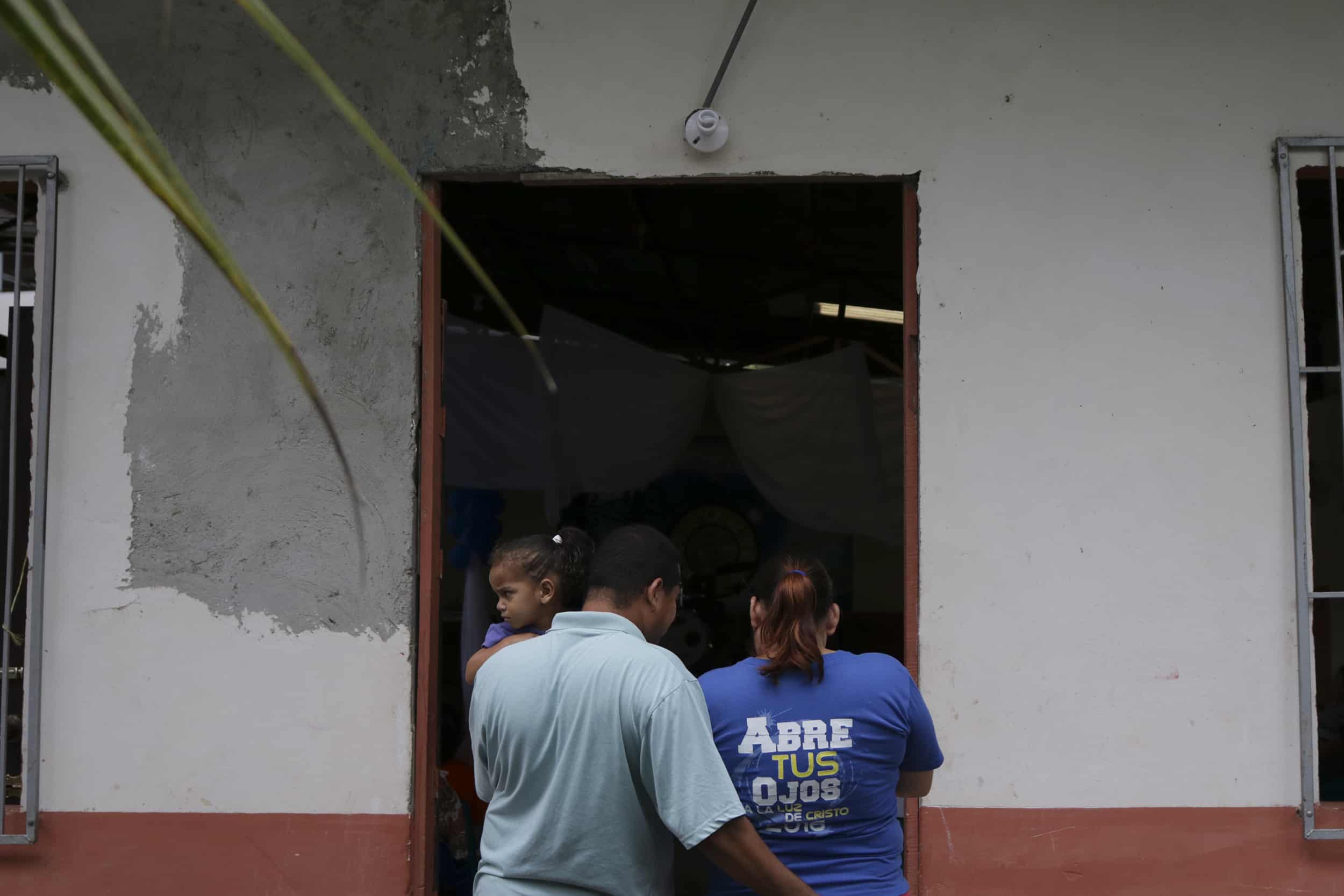On Feb. 4, 2018, Fabricio Alvarado – a presidential candidate who just weeks before was at only three percent in some polls – capped off his upward surge by winning the first round of voting in Costa Rica’s national elections. In no community did he receive a higher percentage of votes than in Pocora, Guácimo, in the province of Limón.
The Tico Times is pleased to translate David Bolaños’ in-depth feature, originally published by Radioemisoras UCR and the weekly Semanario Universidad examining the factors that led to Alvarado’s massive support in Pocora. Part II of IV.
Read Part I , Part II and Part III.
When we surveyed 25 residents of Pocora, Carrandí, and Matina, the main problems they identified were the lack of jobs and investment, crime, and drug addiction.
After the survey, those people were asked how supporting a candidate on the basis of family values could solve such problems.
“Because that’s the most important thing whenever you are going to start something. When you go to work, you need those values to make things right,” said Rudy Sánchez, a neighbor from Carrandí who said he is not affiliated with any church. “A person without a home is no one. That’s why a lot of people here support him.”
The preacher Ana Yaney Mora said that in her congregation, the vision of family and values that is taught is the same as Fabricio Alvarado’s, and this “makes it so people can change so that they can do something different, something nice to live for.”
The evangelical missions teach that these values are a force for change that must precede all action. The PRN candidate’s message was therefore far from unfamiliar. It was a message that the evangelical leaders from the communities had cultivated long before, but the context made it new. The context made it urgent.
Affiliation to those principles and values is seen much more than just a fuel for change; it’s also a guarantee of sorts.
“People say: ‘I prefer to support someone who, because of his or her principles, is very unlikely to get involved in corruption.’ The principles are non-negotiable. When I have a very well defined principle, it’ll help me to make good decisions,” said Jairo Adams at the church he attends, Creados para Adorar (Created to Worship).
“What I believe is that the Church is waking up; the citizenry is waking up and it’s telling traditional politicians, ‘No more of the same things, we want a change,” pastor Pedro Cubero, from Matina, told Semanario Universidad on Feb. 18.
Faith with reserves
Some of the interviewed residents of Pocora, Carrandí, and Matina said that they trust the PRN because its candidate is relatively new to politics.
“If you think about who knows Fabricio Alvarado, no one knows him. Who knows about Restoration? No one knows about it. But if someone has no tail to be stepped on [no baggage], people look for the place where the sun will shine,” commented Sánchez. However, with that faith it seems that restrictions apply.
“In this second round, the people are trying to see what happens, both with Fabricio Alvarado as well as with Carlos Alvarado [his opponent, the Citizen Action Party candidate]. What are we waiting for? I don’t know if another disappointment,” said Pastor Flores from Carrandí.
“Pocora is still very conservative and still hopes for change, that things won’t remain the same. What happens is that they’ve only looked at one part of the discourse and haven’t seen the [other] substantial elements that one must consider when electing a President,” said Carlos Francis, coordinator of the Integrated Adult Education Center (Cindea) in Pocora.
Pastor Rocío Thomas in Pocora takes comfort from one message: “What Fabricio has is fear of God in his heart. I know that Fabricio maybe won’t change Costa Rica or Pocora, but we know that there’ll be a man who’ll be praying.”
Production of the Radioemisoras UCR and the Semanario Universidad*


This article was originally published in Spanish at Radioemisoras UCR and Semanario Universidad on March 6 by journalist David Bolaños.






